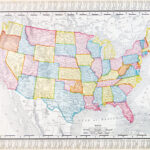How Car Insurance Rates are Determined
Lin Wang
May 11, 2024
Car insurance rates are determined by a variety of factors, each of which contributes to the overall cost of your policy. Understanding these factors can help you make informed decisions about your coverage and potentially save money on your premiums. Here's a closer look at some of the key factors that influence car insurance rates.
1. Personal Information
Your personal information plays a significant role in determining your car insurance rates. This includes your age, gender, marital status, and where you live. For example, statistics show that younger drivers are more likely to be involved in accidents, so they often pay higher premiums. Similarly, urban areas with high traffic density typically have higher rates than rural areas.
2. Driving History
Your driving history is another crucial factor. Insurers look at your record of accidents, traffic violations, and claims to assess your risk level. Drivers with a clean record are usually rewarded with lower rates, while those with a history of accidents or violations may pay more. Some insurers offer discounts for safe driving or for completing defensive driving courses.
3. Vehicle Information
The make, model, and year of your vehicle also affect your insurance rates. Cars that are expensive to repair or replace, have high theft rates, or are more likely to be involved in accidents often come with higher premiums. Safety features and anti-theft devices can help lower your rates. You can check the Insurance Institute for Highway Safety (IIHS) ratings for your vehicle to see how it might impact your insurance costs.
4. Coverage and Deductibles
The type and amount of coverage you choose directly impact your car insurance rates. Policies with comprehensive and collision coverage are more expensive than those with just liability coverage. Similarly, choosing a lower deductible means higher premiums, while a higher deductible can lower your rates. It's essential to understand the basics of car insurance and choose the coverage that best fits your needs and budget.
5. Credit Score
In many states, insurers can use your credit score to help determine your rates. A good credit score can indicate that you're less likely to file a claim, leading to lower premiums. If your credit score could use some improvement, consider taking steps to boost your credit before shopping for car insurance.
6. Driving Habits
Your driving habits, such as how often and how far you drive, can also influence your rates. If you use your car for commuting long distances or frequently drive in heavy traffic, you may pay more for insurance. Some insurers offer usage-based insurance programs that track your driving habits and offer discounts for safe and low-mileage driving.
In conclusion, many factors determine car insurance rates, and they can vary significantly from one person to another and from one insurer to another. It's important to shop around, compare quotes, and understand what's influencing your rates to ensure you're getting the best deal. Remember, the cheapest policy isn't always the best one; you want to make sure you have the coverage you need in case of an accident.



